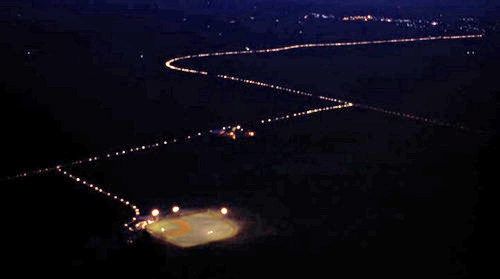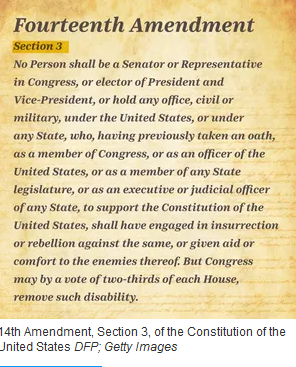
Field of Dreams in the City on a Hill
For centuries the City on a Hill has been buffeted by the tides of religious strife threatening to undo the realm that the eyes of the world are upon. We all remember the dread experienced by the Puritans when confronted by the quaking Quakers. These fearsome advocates of all that is unholy challenged the Visible Saints to stand guard to protect what God had rendered. And what about the Baptists, the Methodists, and Lord only knows what other religious monstrosity would invade our defenseless shores? It’s a wonder the City on a Hill even survived the religious onslaught to come.
Worst of all were the Catholics. Wave after wave of Catholics washed up to undo the work of the Elect of God. The demise of the America can be traced to the failure of Andrew Jackson to stop the encroachment of Catholics when he had the chance. Now we all pay the price for his ineptitude starting right here in New York.
Samuel F. B. Morse was upset, very upset. The Hudson Valley was being overrun by the wrong kind of people. Everything he hoped to accomplish was being threatened by the new immigrants who were overwhelming the natives (who now included Dutch and Germans as well as English) of good stock. Here is how the painter and future inventor of the telegraph described the situation in Foreign Conspiracy against the Liberties of the United States (1835) based on a series of articles he had written for the New York Observer:
Foreign immigrants are flocking to our shores in increased numbers, two thirds at least are Roman Catholics, and of the most ignorant classes, and thus pauperism and crime are alarmingly increased. . . . The great body of emigrants to this country are the hard-working, mentally neglected poor of Catholic countries in Europe, who have left a land where they were enslaved, for one of freedom. . . .They are not fitted to act with the judgment in the political affairs of their new country, like native citizens, educated from their infancy in the principles and habits of our institutions. Most of them are too ignorant to act at all for themselves, and expect to be guided wholly by others [the priests].
Morse’s ire against a supposed great papal conspiracy was, if not a majority opinion at the time, very popular. And we recognize the idiom he used as well:
If Popery is tolerant, let us see Italy, Austria, and Spain open their doors to the teachers of the Protestant faith. The conspirators against our liberties . . . are now organized in every part of the country; they are all subordinates, standing in regular steps of slave and master . . . the great master-slave Metternich, who commands and obeys his illustrious Master, the Emperor [of Austria-Hungary]. . . . It is a war, and all true patriots must wake to the cry of danger. They must up and gird themselves for battle. It is no false alarm. Our liberties are in danger. The Philistines are upon us.
Morse’s song is still sung today. His words have been updated to our words: “If Popery is tolerant (today we would say “If Islam is a religion of peace”), let us see Italy, Austria, and Spain (today we would say “Syria, Iran, and Libya and four others”), open their doors to the teachers of the Protestant faith (today we would say “if they want to build a mosque”).
Morse was not finished: “Where Popery has put darkness, we must put light. Where Popery has planted its crosses, its colleges, its churches, its chapels, its nunneries, Protestant patriotism must put side by side college for college, seminary for seminary, church for church.” Morse called for naturalization laws to prevent the lifeboat of the world from capsizing: “Our naturalization laws were never intended to convert this land into the almshouse of Europe.” Morse didn’t want Europe’s tired, its poor and its enslaved masses incapable of being free-he didn’t want the Catholics and he certainly didn’t want the Catholics, Eastern Orthodox and Jews of Eastern and Central Europe whose odyssey to American shores had yet to begin in earnest in the mid-1830s. Don’t send your wretched refuse to me. Instead, he wrote that,
we must have the [naturalization] law so amended that no FOREIGNER WHO MAY COME INTO THIS COUNTRY, AFTER THE PASSAGE OF THE NEW LAW, SHALL EVER BE ALLOWED EXERCISE THE ELECTIVE FRANCHISE. This alone meets evil in its fullest extent.
At the time Morse and others were writing such things there was a great concern in the land that the Mississippi Valley, not yet the heartland, and America in general were under siege. The papal minions were fanning out across the country spreading their pagan ways among God-fearing Protestants and they had to be stopped. America had to be saved from the clutches of this global religious conspiracy of people not capable of freedom and liberty and slaves to their overseas master.”
“War must be fought” is Morse’s title for chapter 9.
As already noted, Morse by no means was alone in his views about the threat to America. The Know-Nothing Party arose in large part out of anti-Catholic bigotry, and it had non-trivial support in its day. But it also had its detractors, and against these Morse also took aim. Writing in 1835, Morse characterized the media for saying his chosen war was “the fruits of an intolerant, bigoted, fanatical spirit, and the revival of ancient prejudices,” but he would have none of it: “We have fallen on strange times, indeed, when subjects of the deepest political importance to the country may not be mooted in the political journals of the day without meeting the indiscriminating hostility and denunciations of such journals.”
In the decades to follow, another wave of Catholics swept across America irrevocably changing the realm until the field of dreams was no more and all was nightmare. Consider these reports from Iowa.
The report of one of the Methodist Upper Iowa districts at the 1883 Conference contained the following concern about events in its district:
Upon the river borders Catholicism and German rationalism press upon us. Rum and Rome and Rationalism practically coalesce while Protestantism, pressed into the minority, instinctively “rises and retires.”
In the Upper Conference, as Methodist districts were known, the battle against foreign elements resumed with gusto in 1885. The Conference resolved to support the Evangelical Protestant Association in its efforts to evangelize the foreign population amidst the large cities of the country:
Whereas, the growth of Romanism and its efforts to obtain power, demand that active exertions be made to preserve our institutions from its insidious attacks; and
Whereas, the most successful method of awakening the power of Romanism is the conversion of its followers …
Resolved 1st. That we cordially endorse this evangelistic agency and pray that it may become more and more efficient in reaching the foreign Romanish population in our land.
The missionary activity stressed by the Upper Iowa Conference in 1887 was domestic not foreign in scope.
Throughout a wide area on either side of the Mississippi river, a foreign immigration has been steadily driving out our native population and has so weakened our Churches as to make it impossible in some cases and difficult in many, to maintain our existence.
The threat of Romanism and infidelity loomed large on the Midwestern plains.
According to the 1890 census, Iowa was divided between 40% pietist (Protestant) and 29% liturgical (Catholic) with 31% nonmembers, a clearcut sign that the battle waged to protect America was being lost.
The battle against Catholicism at the local level in the Upper Iowa Conference region can be tracked in the annual report of the districts. For example, in 1892, Decorah reported an heroic effort against the depletion of its eastern borders: it was fighting the good fight to hold the territory for Protestant Christianity. Dubuque Methodists declared than even in the midst of a Roman Catholic population, it was not dead. This conflict was no idle matter to the people who had settled the prairies only a few decades before only now to find themselves fighting for their cultural and religious life in the land they regarded as home.
The 1899 Conference report from the Davenport district asks the question:
Am I in the United States of America, or Scandinavia, or the Emerald Isle, or Germany?
Now these alien immigrants from Scandinavia and Germany among elsewhere continued to overrun the land threatening the Methodist and therefore American way of life.
The Decorah district in 1902 reported a disturbing trend in the once-Methodist lands:
the stranger has got possession of the gates, and the native American Methodist farmer seems, and feels himself to be, a stranger in the new surroundings. Germans, Scandinavians, Bohemians and Irish are buying the farms all the more easily, because the American early settlers have reached years when they wish the rest they have earned and the advantages of town life and have the means to gratify the desire. The new occupants bring with them Romanism, Lutheranism, or hatred of all churches, and whatever the form it is in the antagonism to Methodism. Notwithstanding, we are still optimistic, because we believe in God, the gospel go-ahead-itiveness, which last is a synonym for Methodism.
The Pope had designs on Iowa as Decorah reported.
The principal embarrassment to our work, as all well know, is the outgoing of our original New England and Middle States’ people and the incoming, principally of people from the countries of Europe and alien to our Methodistic type of Evangelical religion. Those people who are Protestant are of the state-church type of Lutheran sacramentarians. The major part of them are however, papists. Rome evidently has designs on fair Iowa.
First the City on the Hill had been swept away by the incoming flood of Irish Catholics. Then the field of dreams had been plowed under due to the incoming flood of German Catholics. How much more indignity could the American people endure?
Little did they know that Italian Catholics were about to arrive. “Why have you come, Joe DiMaggio?” sang the anthem of the beleaguered Americans. Those Italian Catholics will never sing to “My Way.” They will only sing to their way. Can anyone even imagine at Yankee Stadium, the great stadium to America’s national pastime at the city at the center of the universe, that Italian Catholics could sing the praises of New York New York?
Woe is us. Even as I write these words the Irish American Heritage Museum is hosting a Governor Martin Glynn Symposium on February 18 in honor of New York’s 40th Governor and its first Irish American Roman Catholic Governor. What’s next? A Catholic President? Catholics on the Supreme Court? Papal Law becoming the law of the land, our Constitution in tatters, people eating pizza?! American is undone all because Andrew Jackson lacked the right stuff to do what is necessary to protect the country from the threat from abroad. We should all be on our knees in prayer giving thanks that our President today will not make the same mistake Andrew Jackson did when he allowed those religious aliens to settle in our country and establish foreign rule even in Middle America!
Portions of this post appeared in “The Methodist Upper Iowa Conference: From Wilderness Settlement to Middle-American Melting Pot,” Methodist History 2009 47/4:226-241 and “The Immigrant Experience in American History: Who Is an American?” American Interest, June 27, 2012, http://www.the-american-interest.com/byline/peter-feinman/.




